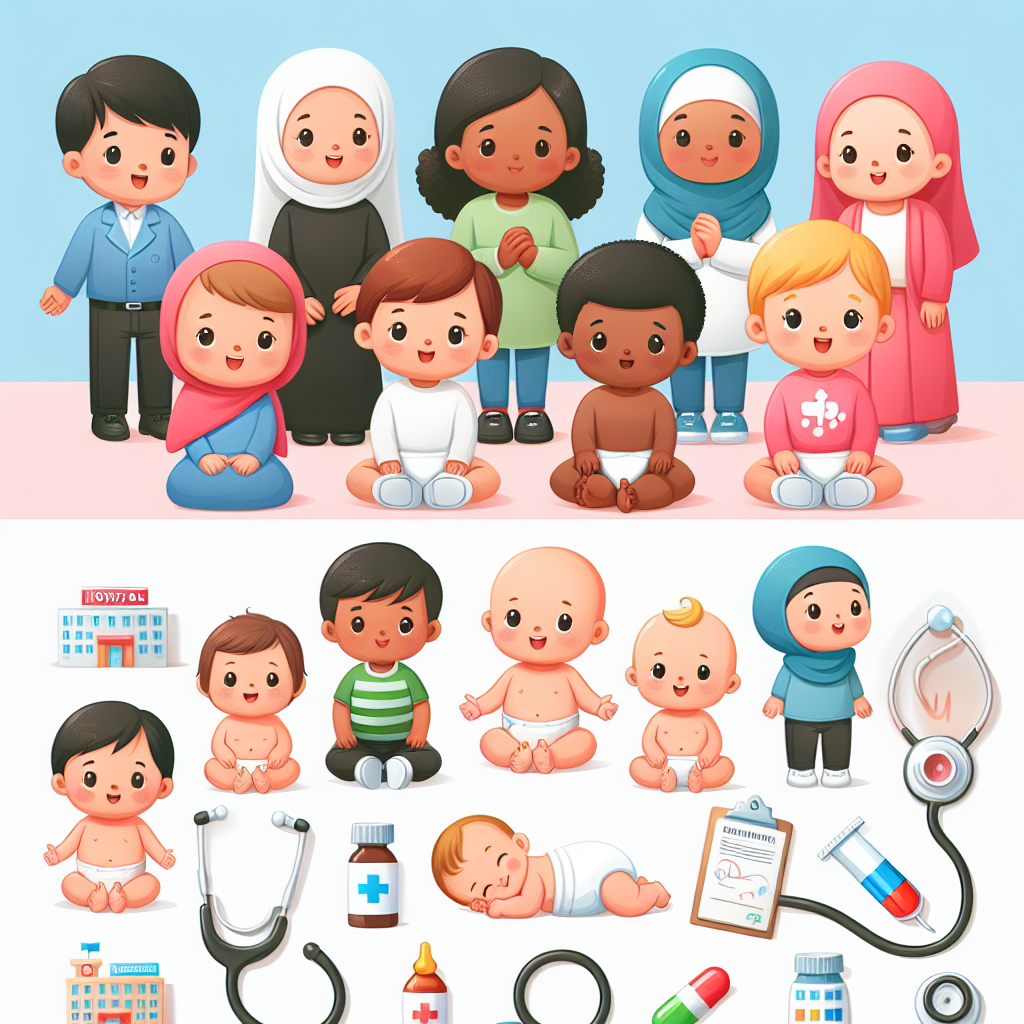Filed under Health Insurance on
Essential Newborn Coverage Under Health Insurance Policies

Welcoming a newborn into a family is a joyous occasion that comes with its fair share of responsibilities and considerations. Among these, ensuring that your newborn is covered under a health insurance policy is paramount. Understanding essential newborn coverage under health insurance policies can be overwhelming, especially for first-time parents. This article delves into the critical aspects of newborn coverage, offering a comprehensive guide to navigating these policies with ease.
Understanding Newborn Coverage in Health Insurance Policies
Newborn coverage in health insurance policies refers to the medical expenses that are covered for a newborn from the time of birth. These expenses include but are not limited to hospital costs, necessary medical treatments, vaccinations, and regular pediatric check-ups. While most health insurance policies provide some level of coverage for newborns, the specifics can vary significantly from one policy to another.
The Affordable Care Act (ACA) mandates that all health plans must provide coverage for children, including newborns. However, the coverage is not automatic, and parents are usually required to add their newborn to their existing policy within a certain timeframe post-birth to avoid any lapse in coverage.
Key Features of Newborn Coverage
- Automatic Coverage: Newborns are typically covered under their mother's health insurance policy for the first 30 days after birth. This automatic newborn coverage offers a grace period for parents to arrange longer-term insurance plans for their baby.
- Hospital Stay and Delivery: Most policies cover the costs associated with labor, delivery, and the newborn's hospital stay, often up to 48 hours post-birth for a natural delivery, and up to 96 hours for a cesarean delivery.
- Medical Screenings and Vaccinations: Policies usually include coverage for necessary medical screenings such as PKU testing and vaccinations required by healthcare guidelines.
- Doctor’s Visits: Many policies provide coverage for several pediatric visits within the first year, which is crucial for monitoring your baby's health and development.
Steps to Ensure Your Newborn is Covered
Securing health insurance coverage for your newborn involves several essential steps:
- Review Your Current Policy: Before your baby arrives, take time to understand the coverage your existing policy offers for newborns. Look at specific terms and exceptions.
- Contact Your Insurance Provider: Upon your baby’s birth, promptly contact your health insurance provider. This proactive step ensures you're informed of any necessary documentation or actions needed to extend coverage.
- Add Your Newborn to Your Policy: Most insurers require notification within 30 days of the birth to include the newborn in the policy seamlessly. Missing this deadline might result in coverage denial or waiting periods.
- Explore Separate Health Plans: If your current policy doesn't completely meet your needs, researching separate health plans specifically for your newborn could be beneficial. Standalone child health insurance plans are available and can be tailored to offer comprehensive coverage.
Real-Life Example: Navigating Newborn Coverage
Consider Lisa and Mark, a couple expecting their first child. Before their son was born, they scrutinized their family health policy. The policy included automatic newborn coverage for the first 30 days, covering hospital charges and essential checks. Right after the birth, Mark contacted their insurance provider to add their son to the policy.
This careful planning allowed them to manage all essential services like neonatal exams and vaccinations without financial strain. Their experience underscores the importance of understanding policy details and acting promptly after a newborn's birth to secure seamless health coverage.
Challenges and Considerations
Newborn coverage under health insurance policies may come with certain challenges:
- Policy Limitations: Not all expenses may be covered, especially if special medical treatments are required.
- Premium Adjustments: Adding a newborn to your health policy can influence your premiums. Exploring cost implications is vital for budget planning.
- Documentation: Formal documentation, including the baby’s birth certificate, is crucial when adding them to your policy. Delays can significantly impact coverage processing.
- Understanding Network Coverage: Ensure that the pediatric hospital and doctors you favor are within the insurer's network to maximize your policy benefits.
Preparation and education are pivotal in surmounting these hurdles, enhancing your family’s overall health safety net.
FAQs
1. What happens if I miss the 30-day window to add my newborn to my health insurance policy?
If you miss the 30-day window, your newborn might experience a gap in coverage. This oversight could leave you to bear the costs of their care until the next open enrollment period or a qualifying life event allows changes to your plan.
2. Do all insurers automatically cover newborns for the first 30 days?
Most insurers do provide automatic coverage for the first 30 days under the mother's policy, but exceptions exist. It's crucial to confirm specific details with your health insurance provider ahead of time.
3. How does adding a newborn affect health insurance premiums?
Adding a newborn typically increases your health insurance premiums. The extent of the increase varies between policies, and it’s advisable to contact your provider to understand the financial implications beforehand.
4. Are there specific screenings and vaccinations that health insurance policies cover for newborns?
Most policies cover standard screenings and vaccinations, such as hearing tests, PKU screening, and routine vaccinations recommended by health authorities. Check with your provider for a complete list of what's covered.
5. Can I get a separate health insurance policy for my newborn?
Yes, obtaining a separate policy is possible and sometimes recommended if you find your current plan insufficient. Standalone child health insurance policies are available and can be tailored for comprehensive newborn coverage.
Ensuring your newborn is covered under a sound health insurance policy is a critical responsibility. With a clear understanding of the process and proactive steps, parents can secure essential medical care for their newborns, guaranteeing both health and peace of mind during this exciting life chapter.





